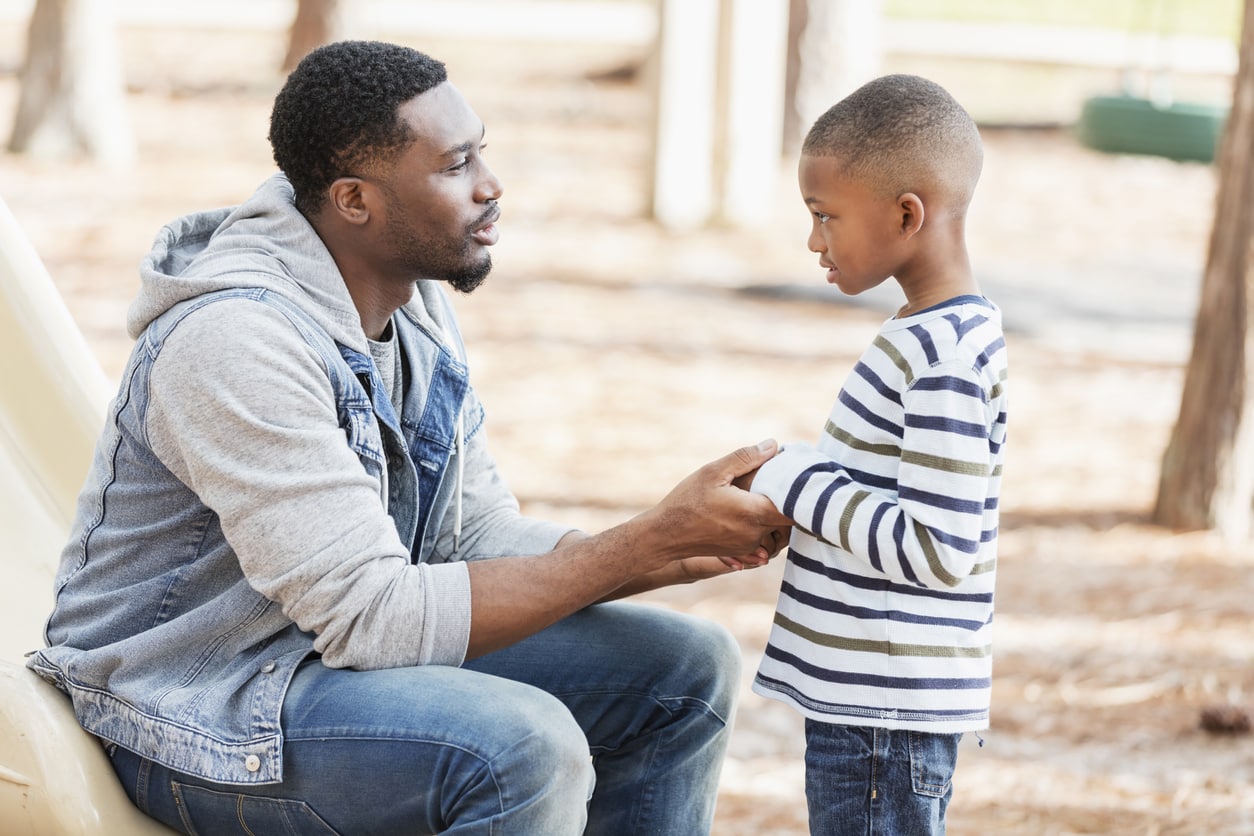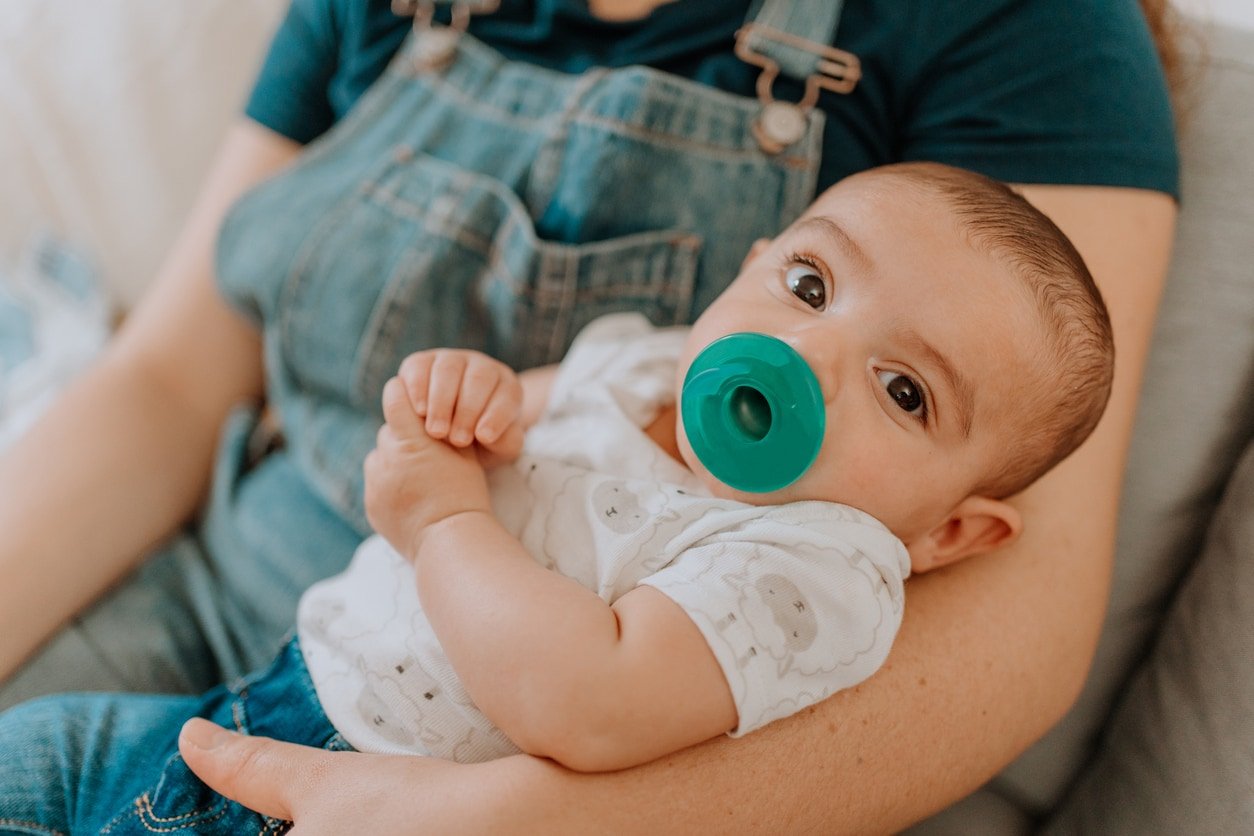As your child is exposed to more adult conversations or increased social environments, they are more likely to meet someone with autism. And they will start coming to you with questions and curiosity about what they have noticed, and it’s essential to know how to talk to kids about autism. It’s important to be able to speak to them about the world and answer their questions since they are naturally curious. This avid curiosity can sometimes create uncomfortable situations where children ask (often loudly or at an inopportune time) about something they have noticed, including differences or unique traits they have spotted in someone. Like asking, “How come that woman needs crutches?” or “What’s wrong with that man’s hand?”
Children comment on differences they can see, a visual difference – something like a person using crutches or a birthmark.1 As they get older, they start to notice how people engage and interact with the world differently than them. This could include intellectual disabilities, learning disabilities, and speech impediments. Autism is very much a difference demonstrated in how children socialize, engage with, or process the world around them. Here are some things to remember when deciding how to talk to your kids about autism.
5 Things to Keep in Mind When Talking to Your Child About Autism
1. Don’t Avoid the Conversation
Curiosity is natural, so don’t shut the conversation down. Children aren’t usually intentionally unkind; they are just interested. They have spotted something different from what they know or understand and want to try to make sense of what they see.2 There is some fear about being politically correct that can make us instinctively close down the discussion. However, by not addressing their question, we can accidentally do more damage as it infers that we should ignore differences or that differences are something to be ashamed of.
In addition, even if children stop asking about differences, you can be sure they haven’t stopped noticing it. Instead, they use their imaginations, experience, what others tell them, or biases to make sense of what they see. So, it is better for you to navigate this conversation with them than to let them figure it out themselves.
2. Ask Them What They Know
When deciding how to talk to your kids about autism, find out what they know first before you launch into a description of what autism is. That way, you can gauge what they already understand (which gives you a chance to clear up any misconceptions) and also try to understand why they want to know. This can help determine how much you might want or need to share at that moment. When you give them information, think about their developmental level; give them just enough to understand but try not to bombard them with too much information. Then provide them with the opportunity to come back to you if they have further questions.
3. Talk to Them About How We’re Different
Discuss how brains and thinking styles differ and how boring it would be if everyone thought the same or liked the same things. You can also remind them of their skills, strengths, and challenges to help them remember that it’s okay that everyone is different and that we are all good at some things or find specific tasks come more easily than other things.3
This emphasis places value on different types of brains and ways of thinking before you even tackle the concept of what an autism diagnosis means. You can also consider what your child has noticed that made them ask the question. Suppose they have seen a specific behavior someone with autism is showing. In that case, you could talk more about the diagnosis and particular strengths and challenges that autistic people might experience.
4. Don’t Focus on the Diagnosis
Avoid focusing on the diagnosis. Depending on their age, developmental level, and reasons for asking, you might explain that autism exists on a spectrum, which means no two people with autism will do, say, or think about things the same. However, they may have some challenges with social situations, how they communicate, learn, think, and problem-solve. The focus here is not on the challenges that autistic people face or even on putting them into one group that is all the same. Instead, consider reminding them that everyone is different, including people with the same diagnosis, and discuss with them that people with autism have exceptional skills or unique ways of thinking that are positive, exciting, or creative.
5. Get Your Detective Hat On!
If you don’t know much about autism, aren’t sure how to talk to your kids about autism, or worry that you might get it wrong, it’s okay to postpone the conversation. Let them know that their question is legitimate but also be open that you aren’t sure of the answer. You could suggest doing some research together; your local librarian or national or state autism foundations will be an excellent resource for materials and books you can read. Autism Speaks is another wonderful resource to learn more. There are also many picture books focusing on insights into autism, so don’t forget to pick up some bedtime reading material for you and your child.
Keeping conversations open helps us focus on strengths and reflect on how people do things differently. Then, we create opportunities for our children to learn acceptance and tolerance.4, 5 Children are programmed to catalog and make sense of the world around them, including the people in it. So rather than shut down the conversation, consider that the most important thing is how we respond to their observations as it creates intention and awareness, which will benefit our children as they navigate their world.

 PARENTING TIPS
PARENTING TIPS PREGNANCY
PREGNANCY BABY CARE
BABY CARE TODDLERS
TODDLERS TEENS
TEENS HEALTH CARE
HEALTH CARE ACTIVITIES & CRAFTS
ACTIVITIES & CRAFTS


